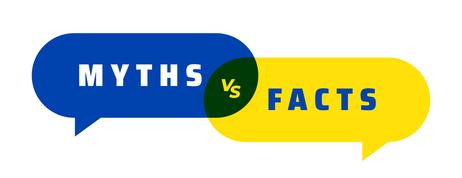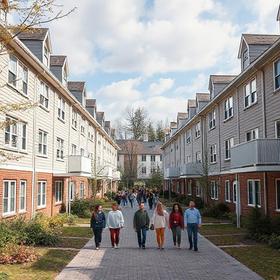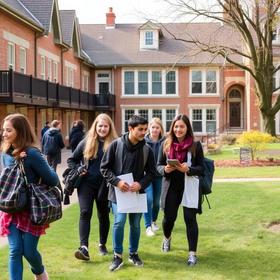Boarding School Myths Parents Still Believe (and the Truth)
Deciding whether a boarding school is the right choice for your child remains a significant decision in 2025. Yet many misconceptions persist about what boarding school life looks like, how it impacts students, and who attends it. In this article, we address the most common myths parents still believe, present the current evidence, and offer guidance on what modern boarding schools actually offer.
Myth 1: Boarding Schools Are Only for Troubled Teens
The myth: Boarding schools are places where problem-children are sent.
The truth: Many boarding schools today are college-preparatory environments, not behavioural correction centres. For example, one institution explains: “Our students come from diverse backgrounds and are motivated individuals who seek a well-rounded education” rather than simply “kids in trouble.” St. John's Northwestern
Why the myth persists: Popular culture, older generations’ experiences and the conflation of therapeutic and traditional boarding schools fuel this misconception.
What to look for:
Admissions materials that emphasise academic, athletic, character development rather than behavioural remediation.
Student body profiles: whether many students are first-time boarders, transfer students, or those seeking structure.
Support services for students with learning differences—not simply “behavioural problems”.
Myth 2: Boarding School Means Wealthy Families Only
The myth: If you send your child to a boarding school, they must come from a very affluent family.
The truth: Many boarding schools now offer substantial financial aid and host students from a wide range of economic backgrounds. One resource noted that “need-based financial aid” can cover a large portion of tuition. IECA
Key data example (2025): Some top U.S. boarding institutions list financial aid figures: e.g., 37-40 % of students receive aid, and some families with incomes under defined thresholds may qualify for major discounts.
What parents should ask:
What percentage of students receive aid?
What is the average aid award?
Are there sliding-scale models for families with moderate incomes?
Myth 3: Students Lose Touch with Home and Family
The myth: Once your child attends a boarding school, they are cut off from family life and become isolated.
The truth: Modern boarding schools emphasise connection with families, use technology to stay in touch, and schedule regular visits or home weekends. For instance, one blog notes that “apps like Skype, WhatsApp keep family and friends right at someone’s fingertips.” International School of Minnesota
What to check:
What is the school’s policy on family visits, home weekends and parental engagement?
What communication tools are available (video calls, dorm parent contact, parent-school portal)?
How far is the campus from home (for local families)?
Myth 4: Boarding School Is Overly Strict, Too Rigid
The myth: Boarding schools are archaic, authoritarian institutions with uniforms, curfews and no freedom.
The truth: While boarding schools are structured by nature, many have evolved. According to a 2025-dated review: dress codes vary widely, curfews are more flexible, and student-wellbeing initiatives are increasingly central.
Modern features to look for:
Dorm parent programs that emphasise mentorship rather than punishment.
Student leadership roles and involvement in community life.
Clear but flexible curfews, free time, and weekend activities.
Residential life that blends structure with independence.
Myth 5: Boarding School Means No Fun or Free Time
The myth: Students are continually working, studying and have no downtime or social life.
The truth: Modern boarding schools aim for balance. Many schedules include study halls, athletics, arts, clubs and weekend excursions. One school wrote: “There are plenty of opportunities and events … you’ll have quality time with friends.”
What to ask about:
What clubs, sports or arts are offered?
What does a typical weekend look like?
How many hours per day are designated for free time or dorm-community activities?
Myth 6: Boarding Schools Guarantee Ivy League Admission
The myth: If your child attends a boarding school, they are automatically on the fast track to an Ivy League or elite university.
The truth: No high school—boarding or not—can guarantee admission to top universities. What counts is how a student engages in the school’s curriculum, extracurriculars and growth. One article clearly states that “it’s not where you go to high school but how well you do there.” IECA
Important points for parents:
Ask about college counselling resources and outcomes (not just top school placements).
Review how the school supports the full range of post-secondary aspirations, including liberal arts, technical fields, service or entrepreneurship.
Consider fit: what the school offers and how it matches your child’s interests, not just prestige.
Myth 7: Boarding School Is Only for High-Achievers
The myth: Boarding schools are designed only for students who are already performing at the top of their class.
The truth: Many boarding schools today admit students who will benefit from accelerated opportunities, remediation or enrichment. One recent update confirms schools increasingly value student growth over prior achievement.
What to check:
Does the school offer learning support, tutoring or differentiated instruction?
Are there students with a range of academic posters, interests and backgrounds?
Is emphasis placed on character growth, not just GPA?
Myth 8: Boarding School Doesn’t Prepare Students for the Real World
The myth: Boarding school creates a bubble; students become sheltered and ill-equipped for life beyond campus.
The truth: Many boarding schools frame residential life as a living-learning laboratory. Students frequently learn time management, self-advocacy, cross-cultural skills and independence. A 2025 review states that graduates develop “independence, time management, collaboration and cross-cultural communication.”
Indicators of strong preparation:
Internship, service learning or global programmes embedded in the school.
Dorm leaders or residential advisers who teach life-skills (laundry, budgeting, scheduling).
Alumni tracking that shows graduates in diverse environments beyond college.
Summary Table: Myth vs. Reality
| Myth | Reality |
|---|---|
| Only for troubled teens | Students are from broad backgrounds and high potential for growth |
| Only for wealthy families | Many schools offer substantial need-based aid and diverse socio-economics |
| No family connection | Frequent family engagement, tech connectivity and home weekends |
| Overly strict and rigid | Flexible programmes, student voice, focus on wellbeing |
| No fun or downtime | Balanced academic + social + co-curricular life |
| Guarantees elite university admission | No guarantee; success depends on student engagement and fit |
| Only for high-achievers | Supportive for a wide range of learners |
| Doesn’t prepare for real life | Residential life offers leadership, independence and real-world skills |
How to Evaluate a Boarding School in 2025
As you consider boarding schools, here are actionable steps:
Visit the campus (if possible) and observe dorms, meals, social time and student interaction.
Talk with current students and alumni about their experience, including support systems and social life.
Review the school’s data – diversity statistics, financial aid, college matriculation and student support programmes.
Ask about residential life – dorm parent to student ratios, study hall practices, free time, parent engagement.
Assess fit over prestige – match the school’s culture, offerings and community to your child’s personality, goals and learning style.
Final Thoughts
In 2025, many of the myths surrounding boarding schools no longer reflect reality. If your family is exploring residential schooling, it is important to replace outdated assumptions with current, verified information. By focusing on how a school supports your child’s academic growth, personal development and social wellbeing—and by ensuring good fit—you can determine whether a boarding school might be the right option for your child’s next chapter.
When evaluated carefully, boarding school can offer a dynamic, supportive and transformative educational experience.















